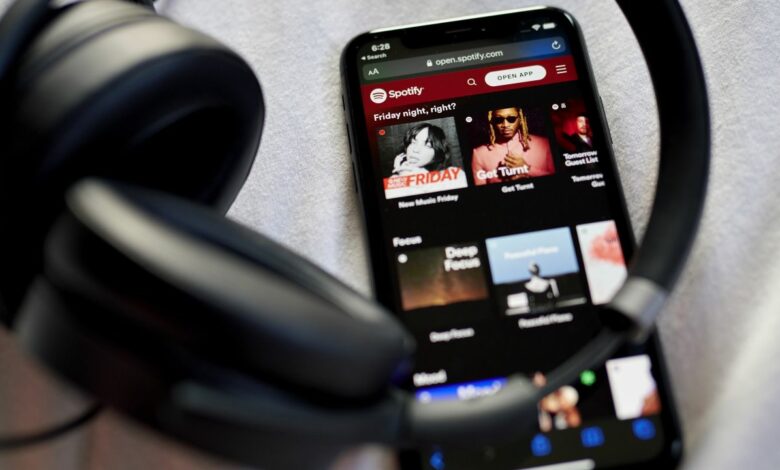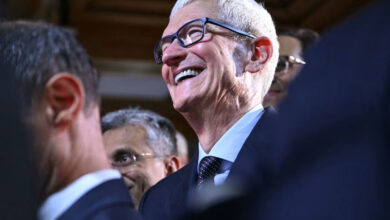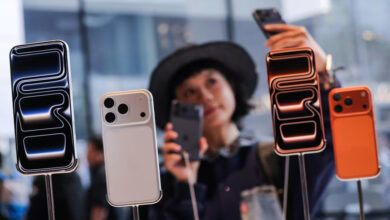
The music streamer is taking its grievances with the Silicon Valley goliath public, openly lashing out at the company over a dispute that centers on the 30% App Store fee Apple charges for in-app digital services transactions.
“We are talking about this because it is reflective of Apple’s anti-competitive practices across the board,” Harry Clarke, associate general counsel and Spotify’s lead competition lawyer, told CNN in an interview Tuesday.
Here’s the backstory: Spotify (SPOT) simply refuses to fork over the whopping 30% cut of its business to Apple. That means that the company cannot sell audiobooks, a business it is trying to break into, inside its iOS app. Spotify (SPOT), instead, came up with three workarounds, which it believed were consistent with Apple’s policies. But they were all ultimately rejected after undergoing reviews for the App Store, forcing the company to essentially abandon offering its customers an avenue for audiobook purchases in its iOS app.
A version of this article first appeared in the “Reliable Sources” newsletter. Sign up for the daily digest chronicling the evolving media landscape here.
The effect is clear to would-be book buyers. iOS users who scroll through Spotify’s audiobooks library and tap on a selection are greeted with a message: “Want to listen? You can’t buy audiobooks in the app. We know it’s not ideal.” (Apple, of course, also sells audiobooks via its pre-installed Apple Books.)
While Spotify has no real recourse to compel Apple to accept its app featuring its audiobooks workaround, it is using the skirmish to assail Apple in the media and focus attention on the company’s 30% in-app tax, which has long been criticized by the streamer and others. In recent days, Spotify has issued a blistering press release and participated in a lengthy story about the matter with The New York Times.
“We think it is critical that users, policymakers, and competition authorities really understand what is happening,” Clarke explained when asked about why Spotify is creating so much noise around the issue. “Because we have found that once they do understand what is happening, there is almost unanimous agreement that it is unfair.”
Clarke said it is important for the company to raise the issue in the press because Spotify users might not understand why the audiobooks experience in the iOS app is so cumbersome. “One of the challenges of Apple’s rules is that they effectively put a gag order on us to talk about this in the app,” Clarke said, adding that many users “aren’t aware” of the back-and-forth the company has had with Apple.
Apple, for its part, is not directly addressing Spotify’s PR campaign against it. The company referred CNN to a general statement about the dispute, in which it said that it had “no issue with reader apps adding audiobook content,” but that Spotify’s workaround — its in-app purchase method — broke its rules.
Spotify’s public war on Apple is part of a larger trend lately, with other Big Tech companies taking aim at the iPhone maker. Mark Zuckerberg recently took a shot at Apple’s iMessage security features, arguing that his WhatsApp is more secure. And Google has been hammering Apple for refusing to play ball with Android on texting.
And it’s unlikely these types of pressure campaigns will fizzle out anytime soon. Spotify said that it plans to continue to publicly pressure Apple on the matter. “We are going to continue to amplify this issue,” Clarke said, “to help people understand the negative impact Apple’s policies are having.”




